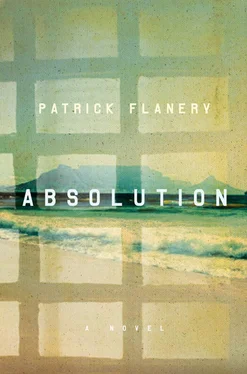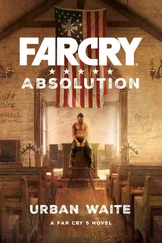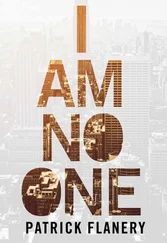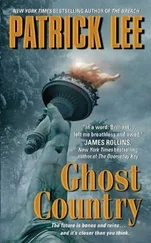‘But the two unpublished novels that you dismiss as juvenilia, those were written before you were married, so I think the question isn’t unjustified.’
‘Fine then. Did motherhood change the way I wrote? You mean the practice of writing or the content?’ Without any audible transition, she goes from dismissive to sounding as though she’s at least willing to weigh the question seriously.
‘Either. However you wish to interpret “wrote” or “writing”.’
‘It’s not a terrible question now that I think about it,’ she says, pausing again, and I remember her looking out the windows at her garden, always looking, as though the plants, the trees and the flowers, perhaps even the lawns and the lap pool, held all the answers. ‘Motherhood changed the practice of writing in predictable ways. My time was no longer entirely my own, though such an experience is not unique, least of all for a mother. Simply, the case is this: investing oneself in the institution of family is always about the partial annihilation of self (for the unlucky, for those who comprehensively rebel against the constraints of family because they feel no other choice but to do so, family feels like the total annihilation of self, the foreclosing of all possibility of individual subjectivity). For me, as a mother and wife at that historical moment in this most socially retrogressive of settler countries, it meant that I was suddenly burdened with child care, with the fundamentals of dirty nappies and hungry mouths and wailing and nap time and then, eventually, with the ferrying back and forth to school and to see friends and the dramas of adolescence, while the children see the parents, if they see them at all (if mine saw me at all), as disciplinarians and facilitators and protectors rather than actors in their own right: the child’s narrative, for the child, has to eclipse that of the parent, who is a mere supporting character. So motherhood robbed me of time, and to claw back some of that time (here I’m being grotesquely confessional), I carved it out of my marriage — less time for my husband, more for the writing and the children. My son would tell you a different version, one in which, once my career took off, I was almost always absent, and he was raised by his father, nannies, au pairs, maids, and even gardeners. But it would not be an accurate version, nor, I admit, a wholly inaccurate one, and in that respect I do not feel I have to apologize for having been absent at times as my children grew up. I was there when it was important to be there. As for the content of the writing, whether the biological and chemical fact of motherhood changed my style and form and subject matter, I’ll have to leave that to the critics, who will decide after my death.’
Clare had no appetite for dinner. She pushed her food around on the plate, toying with it like a cat fondling an animal it has killed by mistake, while Mark finished one portion and helped himself to another, as if he could neither eat his fill nor be done with the meal fast enough. Eye contact between them, when it happened, was only momentary; it seemed that her son was doing everything in his power to avoid looking at her. The plate before him, the series of four geometric paintings on the walls of the dining room, and the windows with their views of the floodlit back garden, lights turning the trees and shrubs into a static menagerie and the pool into a fantasy portal of shimmering green, these were what Mark’s eyes rested upon, not on the face of his mother. It was impossible to tell him how much this hurt. Clare tried not to stare at him, but she could not help it; he was all she had left in the world apart from the people whom she paid to organize and look after her. She knew that he was no longer hers to claim — that right belonged to his wife and his children, if it belonged to anyone.
‘Was it only last year that I had the house invasion?’ Clare asked, less because she was uncertain and more to break the silence.
‘Don’t you remember, Mother? It was the year before.’ He said it in a way that suggested Clare was often forgetful and she felt the rebuke like a punch to the gut.
For many years before the break-in Mark had encouraged her to sell up and move somewhere more secure than the house on Canigou Avenue, and when at last she had recognized there was no other choice but to subject herself to voluntary house arrest behind high walls and gates and electric fencing, with Marie as her personal turnkey, always stalking behind, even then she had complained that it was no way to live, no way for a woman, no way for any person, let alone someone who had forever taken her freedom for granted. In retort Mark had told her South Africa was no place for a single elderly woman, or two such women, to be living without the protection of a man at home twenty-four hours a day. Go to Australia or New Zealand, he’d pleaded, or Britain or France, or even America. Any one of those would be preferable to here. Clare had asked him, thinking of his wife who had experienced several near misses on the street outside their house, if marriage or the companionship of a man guaranteed protection. No, Mark had been forced to concede, if it were possible for him to find a job elsewhere in the world, somewhere safer, a place where he could go out to the shops in the evening without worrying about what might be waiting at home when he returned, or what might happen on the way there or back when he was doing something as innocuous as picking up the dry-cleaning, then he would move the whole family, Clare included, without hesitation. He had reached the conclusion that South Africa was simply no place to be a woman of any age or any race. ‘The only thing that would make these people change,’ he’d said, ‘is if all the women in the entire country simply left. That’s what it would take: the desertion by more than half the population to demonstrate that they’ve had enough of being treated as less than second-class citizens, less than animals, but as property held by the community of men, open to the exploitation of men, abused and subjugated and made to act against their own interests, to be complicit in the violence that is done against them by men.’
‘So you must remember the particulars of the house invasion,’ Clare said, pushing aside her plate. ‘The incompetence of the police, the failure to locate any viable suspects or follow any of the evidentiary leads, the fact that a great many things of obvious value — electronics and silver and the like — were ignored in preference for an object of no obvious value except perhaps to a collector of legal paraphernalia.’
‘Grandpa’s wig.’
‘Quite.’
‘And the police never solved the case.’
‘It was a travesty of investigation and legal process. They accused me of being something like a criminal for living in so vulnerable a position, as though Rondebosch were Langa, and they made insinuations about my long-term safety, even my right to remain in this country as a white woman, never mind the validity of my birthright to call myself a citizen of the republic. They suggested I was a foreigner, or if not an actual foreigner, then in essence no different to one.’
‘If it were a matter of all the white women leaving the country, I’ve begun to think that one would find a great many supporters for such a solution.’
It was not something Clare herself would have said — indeed, she thought it far from accurate, and began to see that her son’s politics were not as progressive as she had once believed.
‘In any case,’ she continued, ‘what is important about the recent events is that the wig was returned — at least, it has come back to me, and, I think, was intended to do so all along. Though it was left up to me to find it, it was hiding in plain sight, and not even hiding, but broadcasting its location in a most symbolic way.’
Читать дальше












